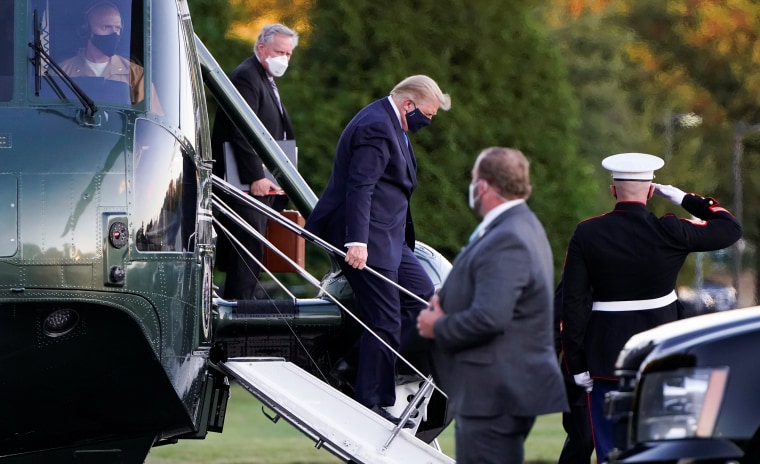It's hard to forget the events of early October, when Donald Trump tested positive for COVID-19 and was hospitalized for treatment. The New York Times published a report late yesterday suggesting the then-president's condition was more serious than we knew at the time.
President Donald J. Trump was sicker with Covid-19 in October than publicly acknowledged at the time, with extremely depressed blood oxygen levels at one point and a lung problem associated with pneumonia caused by the coronavirus, according to four people familiar with his condition. His prognosis became so worrisome before he was taken to Walter Reed National Military Medical Center that officials believed he would need to be put on a ventilator, two of the people familiar with his condition said.
As Rachel emphasized on last night's show, this is the Times' reporting, which has not been independently verified or confirmed by NBC News or MSNBC. That said, if the Times' article is correct, it suggests the Trump White House lied comprehensively about his condition the month before the election.
"Mr. Trump's blood oxygen level alone was cause for extreme concern, dipping into the 80s, according to the people familiar with his evaluation," the reporting added. "The disease is considered severe when the blood oxygen level falls to the low 90s."
At face value, accounts like these may not seem too surprising. After all, Trump and his team earned a reputation for brazen dishonesty about matters large and small, so the fact that they may have also lied about the severity of his viral infection may not come as too great a shock.
But reading the Times' reporting, I found myself thinking about this NBC News piece from four months ago.
Vice President Mike Pence had not been transferred the power of the presidency, a government official said, ahead of President Donald Trump's arrival Friday at Walter Reed National Military Medical Center. Pence was at the Naval Observatory in Washington, the vice presidential residence, on Friday evening, an official said.
To be sure, if the White House and presidential physicians engaged in some kind of cover-up related to the sitting president's health, it raises important questions that deserve answers.
But I'm also stuck on continuity-of-government questions. I can't say with certainty whether the New York Times' account is correct, but if it is, the Leader of the Free World had "extremely depressed blood oxygen levels" and lung problems. Perhaps we could get some additional information about how close Trump was to turning over the powers of this presidency to Pence? And if such a step was not under consideration, why not?

